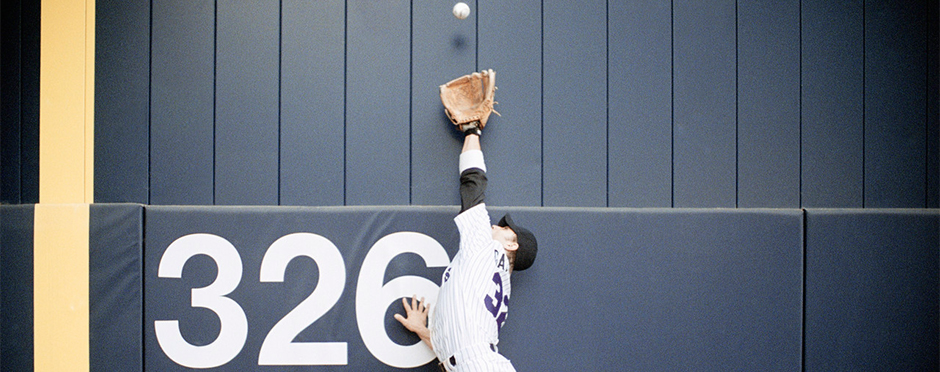
Don’t Let Fear Keep You Out of the Game
Leave a CommentInjuries in sports are common and can occur at any age and at any time – including practice or competition. One of the consequences of injury can include fear of re-injury when the athlete returns to play. Fear can potentially be a limiting factor in rehabilitation and recovery. However, there are ways to address these psychological concerns during recovery to help athletes return to play with more confidence.
Physical and Psychological Recovery
Rehabilitation programs traditionally have three distinct phases: acute injury phase, repair phase and remodeling phase. These phases are based on the three stages of the healing process and have proven to be effective in assisting injured athletes to return to their sport.1 That said, these phases do not necessarily incorporate the psychosocial aspects involved with injury and recovery.
Examples of the types of psychosocial challenges injured athletes may face include frustration and depression due to their sudden lack of sport involvement. As they move further into the stages of rehabilitation, some athletes may experience apathy, and poor adherence (too much activity or too little activity) indicating lack of motivation or impatience to return to sport. More examples of psychosocial issues injured athletes may face include decreased self-esteem, anger and fear of re-injury.
Can Fear Be Measured?
Despite the overall emotional responses of athletes improving during post-operative care, studies have noted that “fear” is the most prominent emotion at the time that athletes are returning to activity.4 Subjective questionnaires are the current standard to measure cognitive and emotional responses to an injury. These self-report questionnaires can measure symptoms, disability, pain and emotion. Unfortunately, these surveys have limitations as they are reported by the athlete and “fear” or “lack of confidence” can be interpreted with negative connotations. Furthermore, psychological states following injury may differ from one individual to another. However, objective testing for psychological readiness for return to play is not backed by current evidence at this time.
Who Can Help Athletes with Fear?
An integrated model shows the importance of a team approach to rehabilitation of injured athletes. A coordinated effort between the athlete, doctor, parents, coaches, physical therapist and athletic trainer can assist in a successful and confident return to play. Sport psychologists can also assist in persistent fear for athletes. A sport psychologist is trained to assist the athlete with psychological preparation for competition and the mental and emotional demands of the sport. They can assist in a variety of psychological skills including building confidence, improved focus, coping with anxiety and dealing with pressure.5 Goal setting, imagery, positive self-talk, and relaxation strategies have been found useful in helping athletes cope with pain, stress and anxiety. These strategies also help to address self-efficacy, self-esteem and confidence-related apprehensions, as well as concerns with rehabilitation motivation and adherence.2
Strategies to Support Psychosocial Influences during Rehabilitation2
- Keep the athlete involved with their team during injury rehab
- Create short-term goals
- Use a variety of exercises for rehabilitation to prevent boredom and improve motivation
- Allow the athlete to have input in their rehabilitation
- Use an integrated approach
- Good communication between the athlete, coach, parents, doctor, physical therapist, athletic trainer and possibly a sports psychologist
Returning to Play
Injury can occur when playing sports. However with appropriate rehabilitation, both physical and emotional recovery is possible to get athletes back on the field with confidence.
Should an injury occur during sport, click the link below to schedule a free injury screening at your nearest Athletico location.
The Athletico blog is an educational resource written by Athletico employees. Athletico bloggers are licensed professionals who abide by the code of ethics outlined by their respective professional associations. The content published in blog posts represents the opinion of the individual author based on their expertise and experience. The content provided in this blog is for informational purposes only, does not constitute medical advice and should not be relied on for making personal health decisions.
References:
1. Clement D, Arvinen-barrow M, Fetty T. Psychosocial responses during different phases of sport-injury rehabilitation: a qualitative study. J Athl Train. 2015;50(1):95-104.
2. Clement D, Granquist MD, Arvinen-barrow MM. Psychosocial aspects of athletic injuries as perceived by athletic trainers. J Athl Train. 2013;48(4):512-21.
3. Ivarsson A, Tranaeus U, Johnson U, Stenling A. Negative psychological responses of injury and rehabilitation adherence effects on return to play in competitive athletes: a systematic review and meta-analysis. Open Access J Sports Med. 2017;8:27-32.
4. Schilaty ND, Nagelli C, Hewett TE. Use of Objective Neurocognitive Measures to Assess the Psychological States that Influence Return to Sport Following Injury. Sports Med. 2016;46(3):299-303
5. Zakrajsek RA, Martin SB, Wrisberg CA. National Collegiate Athletic Association Division I Certified Athletic Trainers’ Perceptions of the Benefits of Sport Psychology Services. J Athl Train. 2016;51(5):398-405.
